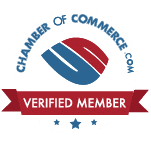Everything to Know About Premise Liability Injury Cases

Premises liability is a legal concept that holds property owners responsible for injuries that occur on their property.
Slip and fall accidents, dog bites, negligent security, swimming pool accidents, and elevator and escalator accidents can all lead to premises liability cases.
Property owners, property managers, landlords, and tenants can all be held liable in a premises liability case.
To prove fault in a premises liability case, the plaintiff must establish duty of care, breach of duty of care, causation, and damages.
If you are injured on someone else's property, it is important to seek medical attention right away and report the accident to the property owner or manager. It is also recommended to gather as much evidence as possible, including photos of the hazard and witness statements.
